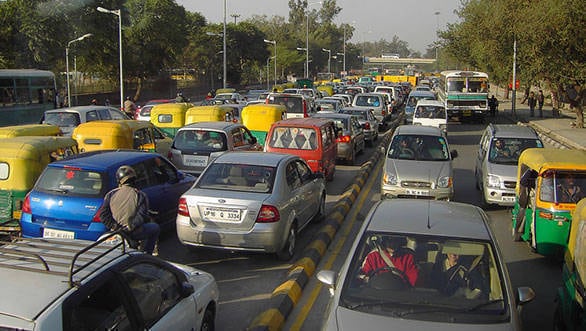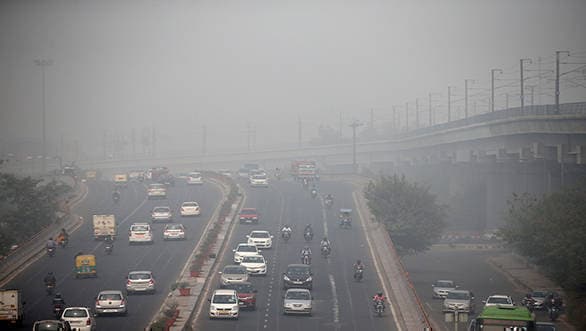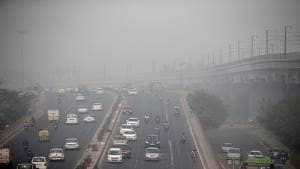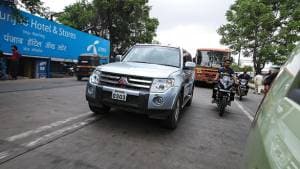Delhi Government hoping to impose odd-even rule at the earliest
Given the severity of the air pollution in the Delhi-NCR, the Delhi Government was to impose its famous odd-even rule from November 13 to 17. The plan was however withdrawn citing the lack of adequate public transport facilities, since in a major change to the odd-even rule, this time around two-wheelers were not to be exempted. Pollution levels in the NCR have hit new highs in the past week, with the AQI (air quality index) consistently hovering over the 450 mark, and smog has severely affected visibility for road transport as well as air travel.
 Delhi alone has over 1.06 crore registered vehicles, apart from the ones registered in NCR regions like Noida and Gurgaon that run on its roads, adding polluting its air big time
Delhi alone has over 1.06 crore registered vehicles, apart from the ones registered in NCR regions like Noida and Gurgaon that run on its roads, adding polluting its air big time
The air pollution in Delhi-NCR is no less than life-threatening at the moment and the odd-even rule would have effectively halved the number of vehicles on the road, somewhat helping reduce air pollution. The NGT or National Green Tribunal felt two-wheelers had no reason to be exempt from the rule, but the Delhi Government has filed a fresh review petition with the NGT, requesting it to exempt women drivers and two-wheelers from the rule, just like before. The Delhi government wants the exemption to continue for the next year or till at least 2,000 more buses are added to public transport systems as it feels current systems are not equipped to handle the additional burden.
 Automobiles are one of the major contributors to the air pollution in the Delhi-NCR, where air quality is at its worst ever currently
Automobiles are one of the major contributors to the air pollution in the Delhi-NCR, where air quality is at its worst ever currently
For the record, Delhi has over 1.06 crore registered vehicles, of which over 68 lakh are two-wheelers. Without the exemption the odd-even rule would effectively take 34 lakh two-wheelers off the roads, thereby putting a huge strain on the existing public transport systems, including DTC buses and the Delhi Metro amongst others. The government fears this would also affect the livelihood of thousands of those citizens who depend on their two-wheeler for commuting or transportation of goods.














